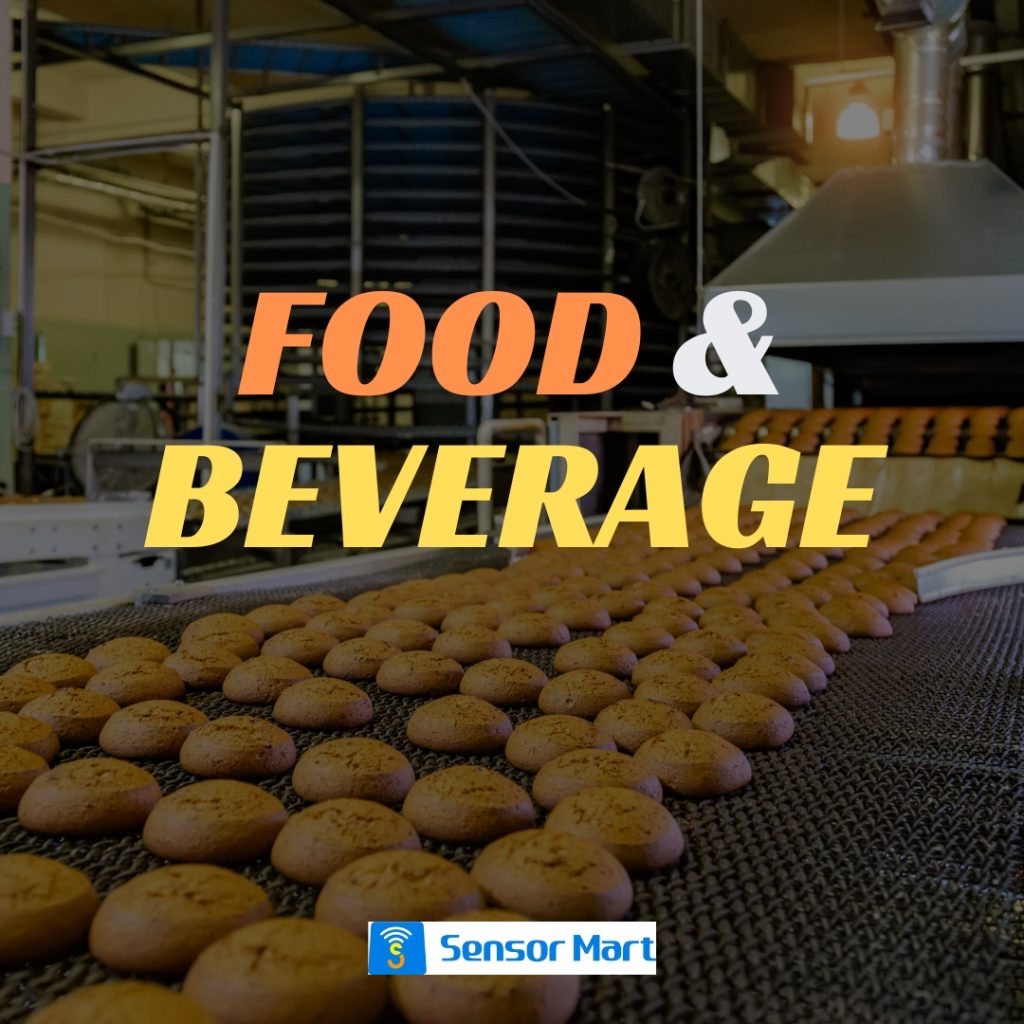Introduction: Sensor technology has transformed several sectors recently, and the food and beverage industry is no exception. From guaranteeing food safety and quality to streamlining manufacturing procedures, sensors are essential to increasing productivity and spurring innovation in this sector. In this blog article, we’ll examine how sensors are changing the food and beverage sector and what that means for businesses in terms of streamlining processes, adhering to regulations, and providing customers with superior goods.

Ensuring Food Safety and Quality: Sensors actively track a number of variables from the point of production to the point of distribution in the food chain. For example, temperature sensors keep food safe by maintaining ideal storage conditions and preventing spoiling. Moreover, moisture sensors ascertain the freshness of product, and gas sensors identify dangerous impurities to guarantee the quality of packed items.
Streamlining Production Procedures: In facilities that produce food and beverages, sensor technology actively makes real-time monitoring and control of production procedures possible. Producers monitor variables including pH, viscosity, and flow rates to guarantee uniformity and excellence in product compositions. This optimization lowers manufacturing costs by improving resource use, cutting waste, and increasing efficiency.
Parameters including temperature, pressure, weight, liquid or solid levels, and pressure are all measured and controlled by sensors.
Improving Supply Chain Management: Sensors actively provide supply chain end-to-end visibility, allowing stakeholders to monitor the flow and state of items from farm to fork. For example, real-time location data from RFID tags and GPS sensors enables accurate shipment tracking and effective inventory management. This openness improves overall logistics efficiency by strengthening traceability and assisting in the identification of any bottlenecks.
Meeting Regulatory Standards: By continually monitoring important parameters and supplying data for regulatory reporting, sensors play a significant role in guaranteeing adherence to food safety rules. By using sensor-based monitoring systems, companies may lower the chance of expensive recalls or penalties, establish customer confidence, and show that they are adhering to regulations.
In summary, sensor technology is revolutionizing the food and beverage sector by actively boosting supply chain-wide safety, quality, efficiency, and innovation. Companies that use sensor-based solutions may gain a competitive advantage by streamlining operations, adhering to regulations, and providing customers with better goods and experiences. As sensor technology continues to evolve, its active role in shaping the future of the food and beverage industry will only become more significant.
